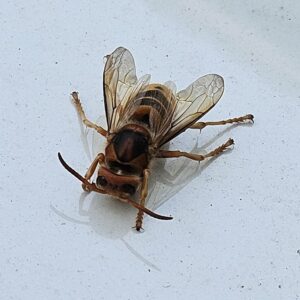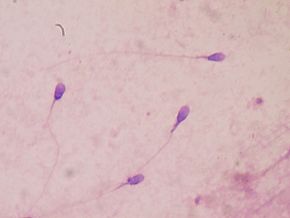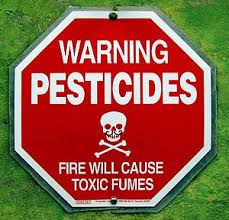 Once again, another study found that being exposed to pesticides has harmful health effects. Of all sorts. A recent study found that pregnant women exposed to certain pesticides increases the risk of a stillbirth. In this case, exposure means living near (less than 1/3 mile) where certain pesticides have been used.
Once again, another study found that being exposed to pesticides has harmful health effects. Of all sorts. A recent study found that pregnant women exposed to certain pesticides increases the risk of a stillbirth. In this case, exposure means living near (less than 1/3 mile) where certain pesticides have been used.
The pesticides linked to increased stillbirths when exposed to in the pre-conception period were: cyfluthrin (a pyrethroid), zeta-cypermethrin (a pyrethroid), pyrethroids as a class, organophosphates as a class, malathion, carbaryl and propamocarb hydrochloride. Exposure in the first trimester of pregnancy to the following pesticides were associated with stillbirths: fenpropathrin (a pyrethroid), permethrin (a pyrethroid), organophosphates as a class, acephate and formetanate hydrochloride.
This means living near a non-organic farm has increased risks to pregnancy and the baby, including stillbirth. Note that some of these are also commonly used residential pesticides, such as pyrethroids (used as insecticides, and especially by mosquito and tick services). We shouldn't be surprised when pesticides applied to kill living things (e.g., insects) also have harmful effects on developing babies (also alive). [Some studies showing harmful effects of pesticides on pregnancy and the developing fetus (baby).]
From Medical Xpress: Pesticide exposure linked to stillbirth risk in new study
Living less than about one-third of a mile from pesticide use prior to conception and during early pregnancy could increase the risk of stillbirths, according to new research led by researchers at the Mel and Enid Zuckerman College of Public Health and Southwest Environmental Health Sciences Center. ...continue reading "Some Pesticides Linked to Increased Risk of Stillbirth"


 For several years I've been reporting on the effects of pesticides on bees. Yes, it's all bad because pesticides kill bees. Commonly used pesticides such as pyrethroids that many view as "safe" kill bees. Pyrethroids are broad spectrum insect killers, which means they kill both beneficial bees and other pollinators, as well as potentially harmful insects (mosquitos).
For several years I've been reporting on the effects of pesticides on bees. Yes, it's all bad because pesticides kill bees. Commonly used pesticides such as pyrethroids that many view as "safe" kill bees. Pyrethroids are broad spectrum insect killers, which means they kill both beneficial bees and other pollinators, as well as potentially harmful insects (mosquitos). The province of New Brunswick in Canada is home to a mysterious
The province of New Brunswick in Canada is home to a mysterious 


 This year a number of persons reported to me that when their neighbors started with mosquito and tick control pesticide applications, they no longer have bees or butterflies in their yards. Even if they have lots of bee and butterfly friendly flowers, or lots of clover - they now rarely or never see bees and butterflies. This has also been my experience.
This year a number of persons reported to me that when their neighbors started with mosquito and tick control pesticide applications, they no longer have bees or butterflies in their yards. Even if they have lots of bee and butterfly friendly flowers, or lots of clover - they now rarely or never see bees and butterflies. This has also been my experience. Bees are pollinators
Bees are pollinators
 Update to the toxic pesticide acephate story of
Update to the toxic pesticide acephate story of